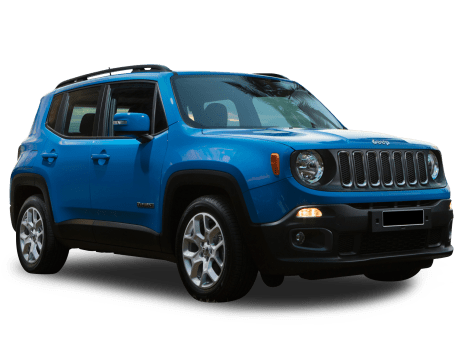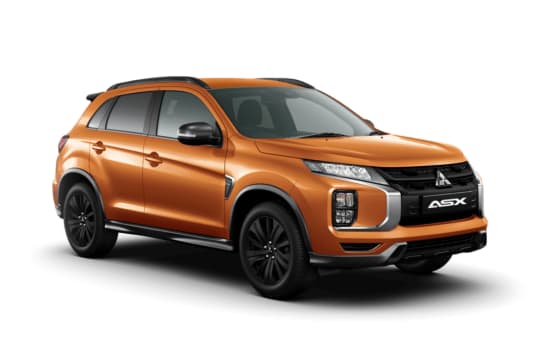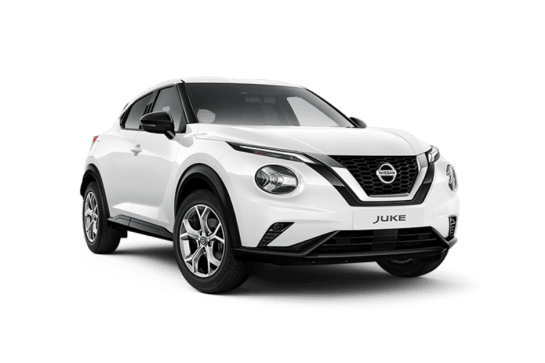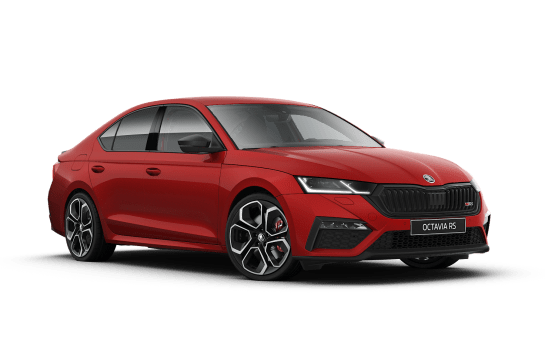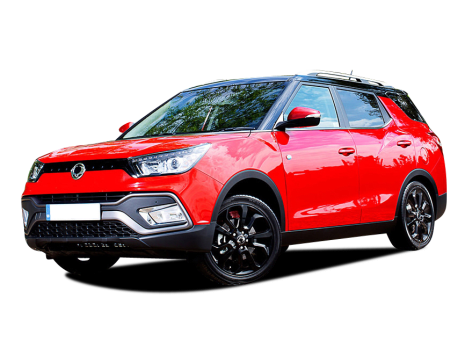
Haval H6 VS Peugeot 2008
Haval H6
Likes
- Great value
- Looks stunning
- Nice to drive
Dislikes
- No hybrid version
- Thirsty petrol engine
- No diesel version
Peugeot 2008
Likes
- Good looks
- Charming engine
- Affordable servicing
Dislikes
- Stiff suspension
- High price
- Driver display hard to see
Summary
Haval H6
There are good surprises and bad surprises. Like the time I was driving my ute and the steering wheel came off. Bad surprise. Or the time the chicken shop accidentally gave me a large chips when I paid for a medium. Good surprise. The Haval H6 also surprised me. And it was up there with a large chips type of surprise.
See, my expectations of Haval have been of a brand which is really big in China where its owned by Great Wall Motors, but can’t keep up with the likes of Toyota and Mazda when it comes to driving and styling. Instead, their strength seemed to be just value-for-money.
Surprise! The new generation H6 isn’t just good value-for-money any more. It’s still really well priced but it has stunning looks, too. But that wasn’t the biggest surprise.
If you are considering a mid-sized SUV such as a Toyota RAV4 or Mazda CX-5, I strongly suggest you widen the net and consider the H6, too. Let me explain.
| Safety rating | |
|---|---|
| Engine Type | 2.0L turbo |
| Fuel Type | Premium Unleaded Petrol |
| Fuel Efficiency | 9.8L/100km |
| Seating | 5 seats |
Peugeot 2008
Looks are subjective but Peugeot’s updated 2008 small SUV is good looking from every angle.
The update brings a raft of design tweaks and some tech upgrades, but mechanically there isn’t anything new.
It’s not a cheap car and its diminutive size might scare off some buyers who can cross-shop cheaper and more value focused alternatives from mainstream Japanese and Korean brands.
Read more about
- 2025 Peugeot E-3008 electric car Australian launch and timing confirmed: New-generation mid-size EV SUV set to battle Tesla Model Y, Hyundai Ioniq 5, Kia Niro EV and Renault Megane E-Tech
- 2024 Peugeot e-208: Nissan Leaf, GWM Ora, and MG4 rival from France looks to get two battery sizes, but will it be more competitively priced?
- 2024 Peugeot 408 GT Fastback pricing and specification confirmed: Mid-size hybrid coupe crossover aims up at Audi Q5, Lexus NX and Volvo XC60
We are driving the range-topping 2008 GT variant to find out if it’s more than just a pretty face.
| Safety rating | |
|---|---|
| Engine Type | 1.2L turbo |
| Fuel Type | — |
| Fuel Efficiency | 6.5L/100km |
| Seating | 5 seats |
Verdict
Haval H67.9/10
The H6 could be the turning point for Haval in Australia. The brand’s first big success that changes the way Aussies view this Chinese carmaker. The H6’s great value and stunning looks will win over many but add an excellent warranty, advanced safety tech, plus the surprisingly good, and you have a package that appears right up there with the likes of the Toyota RAV4 and Mazda CX-5.
The sweet spot of the range would have to be the Lux - the car I tested with its leatherette seats, privacy glass and dual-zone climate control.
Peugeot 20087.2/10
The Peugeot 2008 is a handsome and accomplished little SUV that’s fun to drive and has a cabin that feels a little bit special.
In reality the 2008 is too expensive and isn’t as practical as most of the mainstream compact SUVs.
This is the car you buy with your heart, not with your head.
Design
Haval H68/10
This new generation H6 is ridiculously good looking. So much so that my Dad thought it was a Porsche when I arrived to pick him up. But in saying that Dad also has a glass coffee table supported by a golden naked lady and thinks I work in a car dealership, despite me explaining that motoring journalism is an actual job.
He’s not wrong, for once. Well, it doesn’t look like a Porsche, but I can see what he means given the way the LED strip across the tailgate lights up and connects with the tail-lights either side.
I don’t know what kind of deal with the devil the H6’s designer made but there isn’t an angle from which this SUV looks nothing short of beautiful. There’s the flashy but not over-the-top grille, the sleek headlights, and the smooth lines in profile which wrap around to the curvaceous back end.
Havals in the past have seemed low quality and unfinished, but this new H6 seems the opposite.
The same goes for the minimalist cabin. Those screens house almost every function except for the climate control and that clears the dashboard of buttons.
This cabin is a premium design with a floating centre console and metallic trim. Stepping up to the Lux from the Premium adds 'leatherette' upholstery, a leather steering wheel and then the Ultra takes the high-end feeling further with a 12.3-inch media display and a panoramic sunroof.
As for the dimensions, the H6 is larger than most mid-sized SUVs but smaller than a large SUV at 4653mm end to end, 1886mm wide and 1724 mm tall.
The six exterior colours are, 'Hamilton White', 'Ayres Grey', 'Burgundy Red', 'Energy Green', 'Sapphire Blue' and 'Golden Black.'
Peugeot 2008
The Peugeot 2008 is a smooth operator with head-turning French flair, but the devil is in the detail.
It’s not just the 2008’s well proportioned dimensions or the healthy dollop of exterior black highlights that catch your eye, but Peugeot has added a range of design cues to symbolise the Lion on its badge.
The tail-lights have a 3D effect that make them look like cat’s claws and the daytime running lights on the front resemble a scratch mark. These pair perfectly with the lion head crest on the grille.
Look deeper and you notice the attention to detail.
The 2008's redesigned front grille's slates are colour matched to the car's body colour.
Dual exhaust pipes are finished in chrome, giving the impression of performance even if the car doesn’t deliver on it.
The GT variant gets a two-tone paint job with a black roof contrasting with the body's colour.
Inside there are plenty of high quality finishes. The centre console is festooned in gloss black and there is a lovely carbon-effect textured insert on the dash and doors.
Some hard plastics below eye-level and on touch points such as where your knee might rub are less impressive. The rear seat loses some of the lustre of the front pew with tough plastics covering the back of the front seats and most of the doors.
Practicality
Haval H68/10
The H6 is cavernous for a mid-sized SUV with large and wide seats up front and excellent leg and headroom in the second row. The H6 doesn’t come with a third row which is shame because there’s room for one.
A 600-litre cargo capacity is big for the class and cabin storage is good with two cupholders in the second row, another two up front, a large space under the floating centre console, although the door pockets could be better.
Second rowers will be pleased with directional air vents back there, plus two USB ports. There are another two USB ports either side of the floating centre console, too.
The leatherette upholstery in the Lux I tested was easy to keep clean and would suit families better than the cloth material used in the Premium.
You’re going to notice the high load lip on the boot and for people as tall as me (191cm/6'3") the opened tailgate and your head may meet occasionally. Still the H6 is super practical.
Peugeot 2008
Step inside and there is no hiding the 2008’s diminutive proportions.
It’s 4300mm long, 1815mm wide and 1550mm high, which puts it closer in size to the mini Mazda CX-3 than the larger CX-30 it is more aligned with price-wise.
This all adds up to a snug fit in whichever row you sit.
There are a couple of cupholders in the centre console - a smaller one for a standard takeaway coffee and a larger one for drink bottles.
Slight storage bins in the door can hold a regular drink bottle but there isn’t much room for much else.
The wireless device charger is hidden away behind a compartment below the central screen that opens with a push and there are two USB-C ports up front and the rear seats score a USB-C and A connection.
Rear seat passengers do without a dedicated aircon vent, unfortunately.
There is an issue with Peugeot’s i-Cockpit steering wheel and digital driver display, too.
If you like to sit low the chances are the steering wheel will cut off your view of the bottom part of the display. If you prefer to have the seat jacked up, you’ll have better vision of the readouts.
There are piano key-like physical controls for simple climate functions such as the de-mister and auto climate settings. More complex functions are done via the 10-inch central multimedia screen.
The boot is a decent size at 434L and can easily handle a weekly grocery shop or a few overnight bags.
There is only a space saver spare wheel, but this car is aimed at city driving where it is easier to source a replacement tyre.
Price and features
Haval H68/10
You’re saving a decent amount of moolah choosing a Haval H6 over, say, a Toyota RAV4, Mazda CX-5 or Nissan X-Trail. The H6 entry-grade is called the Premium and lists for $30,990 drive-away, while the mid-range Lux is $33,990 driveaway.
Both come in front wheel drive only. If you’re after all-wheel drive you’ll need to step up to the top-of-the-range Ultra for $36,990 drive-away, or pay $2,000 less and have it in front-wheel drive.
In comparison the RAV4 and CX-5 ranges start more than $3K higher than the entry-grade H6 and don’t get the same level of features. Let me show you what you get for your money.
Coming standard on the Premium are two 10.25-inch displays with Apple CarPlay, six-speaker audio, digital radio, air-conditioning, proximity key with push-button start, a reversing camera, paddle shifters, LED headlights and 18-inch alloy wheels.
Stepping up to the Lux adds dual-zone climate control, privacy glass, power adjustable driver’s seat, the front seats are also heated, leather steering wheel, 360-degree camera and roof rails.
The Ultra brings in a 12.3-inch media screen, power adjustable front passenger seat and both front seats are now heated and ventilated. There's also wireless charging, a head-up display, a heated steering wheel, panoramic sunroof, an electric tailgate, and auto parking.
That’s incredibly good value. Normally things that are cheap (like a Jetstar flight) offer nothing in return (like a Jetstar flight). Yep, nobody is going to accuse you of being ripped off here.
Peugeot 2008
The 2008 range kicks off at $39,990, before on-road costs, for the base Allure grade and rises to $44,490 for the fully loaded GT variant.
That’s a lot of money for a small SUV, especially considering the Skoda Kamiq range starts at $32,990, you can get Nissan’s Qashqai from $33,890 and a Mazda CX-30 for $33,140.
There is a lot to like about the 2008’s standard equipment list, though.
Flash looking 17-inch alloy wheels are complemented by adaptive LED headlights that control individual LEDs to brighten the road without dazzling oncoming vehicles. The headlights will automatically switch on in low light situations and stay on for a short period of time after you exit the vehicle to make it easier to find your way to the door at night.
A 10-inch multimedia screen is compatible with wireless Apple CarPlay and Android Auto, and a wireless device charger completes the cord-free ecosystem.
Peugeot’s 'i-Cockpit' brings a 10-inch driver display with 3D readouts paired with a small steering wheel.
GT buyers can expect eight colour ambient lighting, a six-speaker stereo, four USB charging ports, in-built sat nav and brushed aluminium foot pedals.
Well bolstered seats are heated up front and wrapped in synthetic suede and leather upholstery with contrast green stitching. The driver’s seat is power adjustable and has a massage function but the front seat passenger will need to move the seat themselves.
There are rain-sensing wipers, roof rails, power folding and heated side mirrors and a space saver spare wheel.
It’s a solid list of equipment but is missing some features you’ll find on similarly priced rivals such as a head-up display.
Under the bonnet
Haval H68/10
The same four-cylinder turbo-petrol engine is in all three grades. It’s a 2.0-litre and makes 150kW/320Nm.
This engine had no problems pulling the H6 around when I tested it with my little family onboard with good acceleration and smooth shifts from the seven-speed dual-clutch automatic transmission.
When pushed hard the four-cylinder responds well, but it’s on the noisy side.
As mentioned at the start of this review only the top-of-the-range Ultra grade gives you choice of all-wheel drive or front-wheel drive. The Premium and Lux are front-wheel drives only.
The car we tested was the front-wheel drive Lux, but we’ll be able to review the all-wheel drive version when it arrives in our garage soon.
On paper the all-wheel drive Haldex system in the H6 looks promising and in this generation the SUV has a rear differential lock for better off-road capability. That said, the H6 is not an off-roader in the Toyota LandCruiser sense, and you should keep your adventures in it mild rather than wild.
There’s no diesel in the H6 line-up, nor will you find a hybrid variant or and electric version of this SUV at this stage.
Braked towing capacity is 2000kg for all-wheel drive and front-wheel drive H6s.
Peugeot 2008
Lurking beneath the bonnet is a little three-cylinder 1.2-litre turbo-petrol engine that makes 96kW and 230Nm. That’s a decent amount of grunt from the little unit, but again you can get more oomph for less from mainstream rivals.
It is paired to an eight-speed automatic transmission that drives the front wheels.
There is no hybrid help, either.
Efficiency
Haval H67/10
Haval says that after a combination of open and urban roads the 2.0-litre turbo-petrol four-cylinder should use 7.4L/100km in the front-wheel drive cars and 8.3L/100km in the all-wheel drives.
In my testing of the front-wheel drive I measured 9.1L/100km at the fuel pump. That was after an even split of motorway and urban running.
Thirsty work considering most of the time it was just me and an unloaded car. Add a family of four plus holiday gear and you can expect that mileage to be worse.
It’s here that the H6 is showing a weakness in its offering by not having a hybrid powertrain in its Australian range.
Peugeot 2008
Stiff emissions regulations in Europe mean these little turbocharged petrol engines have a fair bit of self control on the drink.
Peugeot claims the 2008 uses 5.4L/100km on the combined cycle. We used slightly more than this but spent most of the time in the cut and thrust of city traffic where cars use more fuel.
You’ll need to budget for pricier premium unleaded petrol, too.
Driving
Haval H68/10
I’m still in shock. This is the biggest surprise. The H6 I tested was effortless to drive, with a comfortable and composed ride. I was not expecting it, not when most Havals I’ve piloted in the past have disappointed when it comes to the driving bit.
Sure, the engine isn't overly powerful, but it's responsive, and the dual-clutch transmission shifts smoothly whether driving in slow traffic or at 110km/h on the motorway
Sharp speed bumps taken a bit too fast in the front-wheel drive Lux I tested reveal only modest suspension travel, causing a reverberating ‘bang’ as the shocks and springs react. I’ve experienced the same thing in many cars I’ve tested – even properly prestige ones.
This though is one of very few complaints I have about the way the H6 drives, for the most part this SUV performs remarkably well with a (high) level of refinement I seriously wasn’t expecting.
I can’t tell you what the all-wheel drive version of the H6 is like to drive having only tested the front-wheel drive version, but we’ll no doubt have one in the CarsGuide garage soon.
Peugeot 2008
On the road the 2008 is a bit temperamental.
Most European cars are fitted with stiffer suspension than the cosseting springs found in Japanese machines.
This means you’ll feel bumps and road imperfections through your seat more than other SUVs. It has particular problems ironing out consistent smaller bumps, which can unsettle it and lead the 2008 to skip across them.
The counterbalance to that is a more dynamic drive experience, with the 2008 exerting excellent body control through the bends as it is held in line by the stiffer set-up.
Pair this with sharp, direct and well-weighted steering and it's a fun little SUV to take on a twisting country back road.
Three cylinders might not sound like a lot, but in the real world this is all the 2008 needs.
Its 96kW and 230Nm won’t set the world on fire but the torque is accessed from just 1750rpm, which endows the 2008 with some punch off the mark and it feels zippy when navigating the daily commute.
Don’t confuse that for outright speed, though, the 2008 completes the benchmark 0-100km/h dash in 9.3 seconds.
The transmission is fine when you are accelerating or cruising at motorway speeds, where it uses its many ratios to keep the engine humming along in its sweet spot. There are paddle shifters if you want more control.
In stop-start traffic it isn’t as an accomplished performer. It can struggle to find the right ratio and this leads to a jerky movement reminiscent of dual-clutch autos.
The cabin is well insulated with the outside world kept mostly at bay, but you’ll hear the three cylinder’s charming little rumble when you put your foot down.
Parking is a cinch thanks to its petite proportions and the 2008 has no issues navigating tight city streets or underground car parks.
Safety
Haval H68/10
Is the Haval H6 safe? Well the H6 hasn’t been given an ANCAP rating yet, but this new generation car looks to be equipped well with advanced safety tech across all three grades.
All H6s come with AEB which can detect pedestrians and cyclists, blind spot warning and lane change assistance, traffic sign recognition, lane departure warning, lane keeping assistance, and rear collision warning.
The Lux adds adaptive cruise control, while the Ultra brings rear cross-traffic alert with braking, and an 'Intelligent Dodge' overtaking system.
Along with all that tech there are seven airbags on board, too. And for child seats you’ll find two ISOFIX points and three top tether anchor mounts.
Peugeot 2008
The 2008 has a maximum five-star ANCAP safety rating, but that mark was given in 2020 and it might not get the same score if it was retested today.
It has six airbags, but misses out on a centre airbag that protects against head clashes in a side on collision.
It has a decent amount of safety equipment with auto emergency braking, lane keep assist, blind spot monitoring and adaptive cruise control.
Rear cross-traffic alert, which sounds an alarm if a car is approaching from the side as you reverse, is a notable absence.
Ownership
Haval H68/10
The H6 is covered by Haval’s seven-year/unlimited kilometre warranty. Servicing is recommended every 12 months or 15,000km, although the first service is required at the 10,000km point, then 25,000km and so on. Servicing is capped at $210 for the first service, $280 for the second, $380 for third, $480 for the fourth and $210 for the fifth.
Peugeot 2008
Peugeot covers the 2008 with a five year/unlimited km warranty, which is the standard coverage today.
The French brand offers a range of prepaid servicing packs that’ll save you a handy amount compared to pay-as-you-go maintenance.
A five-year plan is the best value, costing $1700 for five scheduled visits every 12 months or 15,000km. That’s $638 cheaper than the pay-as-you-go servicing.
















